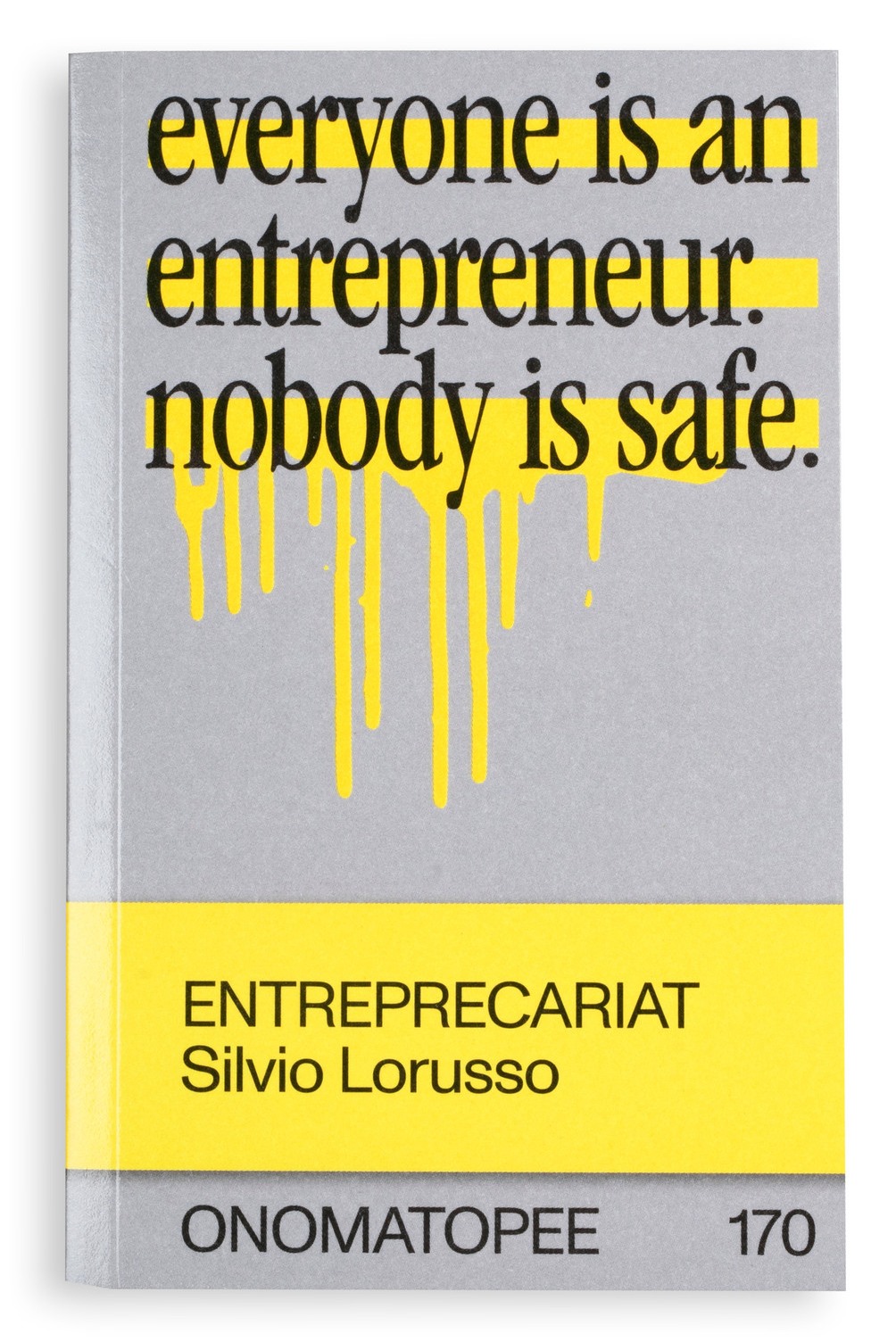Skuteczność sztuki (2014) [Polish]
Filed under book | Tags: · activism, art, art theory, community art, design, knowledge production, labour, participation, participatory art, politics, production, society, work

“Publikacja dotyczy jednego z najważniejszych problemów współczesnej sztuki – jej możliwej i oczekiwanej skuteczności. W obszernym tomie pod redakcją Tomasza Załuskiego, w ponad dwudziestu esejach i wywiadach temat ten zostaje przeanalizowany przez teoretyków i praktyków sztuki współczesnej. Dzięki tej wielości perspektyw publikacja jest pełną aktualnych odniesień prezentacją różnych poglądów, doświadczeń i postaw.
Pojęcie „skuteczności” jest przez autorów ujęte w krytyczny sposób i szeroko sproblematyzowane. Eseje i wywiady zostały pogrupowane wokół sześciu zagadnień: Jak sztuka odnosi się do współczesnych zjawisk ekonomicznych i rodzajów pracy oraz produkcji? Czy dizajn może kształtować zachowania i relacje społeczne? Kolejne części stawiają pytania o kwestie kolektywności, partycypacji i politycznego zaangażowania artystów, w tym o związki sztuki i miejskiego aktywizmu. Wreszcie podjęte zostają problemy dotyczącego tego, czy sztuka może być narzędziem społecznej zmiany oraz czy istnieje dziś miejsce dla sojuszu sztuki i nauki?
Publikacja jest podsumowaniem trzyletniej dyskusji prowadzonej w Muzeum Sztuki na temat zagadnienia skuteczności sztuki.”
Contributors: Edwin Bendyk, Łukasz Białkowski, Roman Dziadkiewicz, Adam Dzidowski, Joanna Erbel, Mikołaj Iwański, Aleksandra Jach, Rafał Jakubowicz, Małgorzata Ludwisiak, Ewa Majewska, Wojtek Moćko, Zbigniew Oksiuta, Adam Ostolski, Marcin Polak, Mikołaj Ratajczak, Monika Rosińska, Aneta Rostkowska, Jan Sowa, Joanna Warsza, Tomasz Załuski, Marcin Zaród, Agnieszka Ziętek.
Edited by Tadeusz Załuski
Publisher Muzeum Sztuki w Łodzi, Łódź, 2014
ISBN 9788363820190, 8363820199
579 pages
Review: Szum (2015, PL).
Comment (0)Silvio Lorusso: Entreprecariat: Everyone Is an Entrepreneur Nobody Is Safe (2018–) [IT, EN]
Filed under book | Tags: · capitalism, design, entrepreneurship, labour, platform, precariat, precarity, work

“Entrepreneur or precarious worker? These are the terms of a cognitive dissonance that turns everyone’s life into a shaky project in perennial start-up phase. Silvio Lorusso guides us through the entreprecariat, a world where change is natural and healthy, whatever it may bring. A world populated by motivational posters, productivity tools, mobile offices and self-help techniques. A world in which a mix of entrepreneurial ideology and widespread precarity is what regulates professional social media, online marketplaces for self-employment and crowdfunding platforms for personal needs. The result? A life in permanent beta, with sometimes tragic implications.”
Italian edition
With a foreword by Geert Lovink and an afterword by Raffaele Alberto Ventura
Publisher Krisis Publishing, Brescia, 2018
ISBN 9788894402902, 8894402908
223 pages
English edition
Translated by Isobel Butters
Publisher Onomatopee, Eindhoven, 2019
Creative Commons BY-NC 4.0 License
ISBN 9789493148161, 9493148165
257 pages
Interviews with author: Walter Marocchi (2019), Floor van Luijk (Metropolis M, 2020).
Reviews: Marco Petroni (Artribune, 2019), Tiziano Bonini (cheFare, 2019), Sandro Moiso (Carmilla, 2019), Giulio Gonella (Volume, 2020), Alessandro Ludovico (Neural, 2020).
Commentary: Nicola Bozzi (Digimag, 2017, EN).
Author
Publisher (IT)
Publisher (EN)
WorldCat (IT)
WorldCat (EN)
Entreprecariat – Siamo tutti imprenditori. Nessuno è al sicuro (Italian, 2018, 9 MB)
Entreprecariat: Everyone Is an Entrepreneur Nobody Is Safe (English, trans. Isobel Butters, 2019, 7 MB, added on 2020-5-12)
Neda Atanasoski, Kalindi Vora: Surrogate Humanity: Race, Robots, and the Politics of Technological Futures (2019)
Filed under book | Tags: · artificial intelligence, automation, capitalism, colonialism, ethics, feminism, labour, liberalism, machine, military, race, robotics, robots, technology, women, work

“In Surrogate Humanity Neda Atanasoski and Kalindi Vora trace the ways in which robots, artificial intelligence, and other technologies serve as surrogates for human workers within a labor system entrenched in racial capitalism and patriarchy. Analyzing myriad technologies, from sex robots and military drones to sharing-economy platforms, Atanasoski and Vora show how liberal structures of antiblackness, settler colonialism, and patriarchy are fundamental to human—machine interactions, as well as the very definition of the human. While these new technologies and engineering projects promise a revolutionary new future, they replicate and reinforce racialized and gendered ideas about devalued work, exploitation, dispossession, and capitalist accumulation. Yet, even as engineers design robots to be more perfect versions of the human—more rational killers, more efficient workers, and tireless companions—the potential exists to develop alternative modes of engineering and technological development in ways that refuse the racial and colonial logics that maintain social hierarchies and inequality.”
Publisher Duke University Press, Durham, NC, March 2019
Perverse Modernities series
ISBN 9781478003861, 1478003863
x+240 pages
Interview with authors: Lesia Pagulich, Tatsiana Shchurko (Feminist Critique, 2019).
Reviews:Sibille Merz (Ethnic & Racial Studies, 2019), Barbara Herr Harthorn (American Ethnologist, 2020), Anita Lam (Surveillance & Society, 2020), Andrea Flores (Information & Culture, 2020), Raquel Bosó Pérez (Sociology of Health & Illness, 2020), Nina Trige Andersen (Modern Times, c.2020), Kevin Pabst (Security Journal, 2020).
Comment (0)
